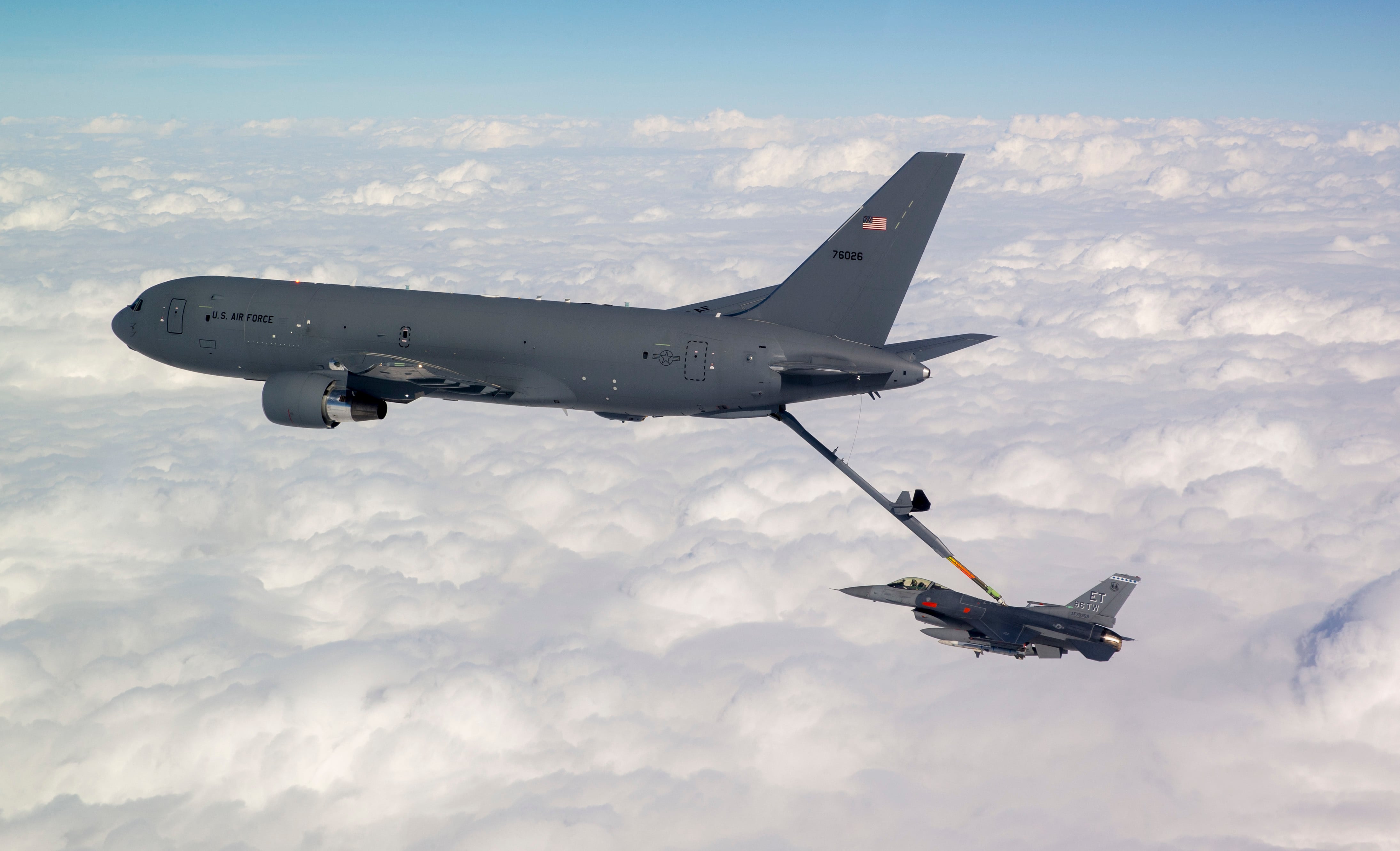WASHINGTON — Boeing will restart production of the P-8 and KC-46 on Monday after a three-week pause in operations spurred by the spread of the novel coronavirus in Washington state.
The company temporarily shut down operations in the Puget Sound region on March 25. Boeing’s sites in Washington focus primarily on the development and production of commercial airliners and militarized variants of those aircraft, such as the KC-46 tanker made in Everett and the P-8 submarine hunting plane made in Renton.
RELATED

While the resumption of operations will focus on defense programs, the company will also reopen the facilities necessary for 737 MAX storage as well as other laboratories and functions deemed as essential.
“Boeing’s work supporting the Department of Defense as a part of the defense industrial base is a matter of national security and has been deemed critical. The work we do directly supports the servicemen and women protecting the nation around the clock – and they are counting on us to get it done,” the company said in a statement.
The phased re-opening of Boeing facilities will help support its supply base and will ensure the company has enough protective equipment available for the 2,500 employees who will return to work, the company said.
Boeing will also enact additional health checks at the Puget Sound sites, including wellness checks at the start of every shift, staggered shift times, additional handwashing stations and cleaning supplies, and a requirement that employees wear a mask at work to comply with state guidance.
The company’s Ridley Park, Penn.-facility remains closed. That site produces military helicopters including the H-47 Chinook cargo helicopter, the V-22 Osprey tilt-rotor aircraft as well as the MH-139A Grey Wolf, which will be used by the Air Force to defend missile fields.
Monday’s reopening is especially good news for the KC-46 program, as the production line is already making tankers at full rate. Boeing has delivered 33 tankers to the Air Force so far, with the production of a total 179 KC-46s expected to be produced in the program of record.
Will Roper, the Air Force’s acquisition executive, said in March that the pause in KC-46 production wouldn’t become a problem unless it extended past a month.
“We’ve tried to make it very clear to our industry partners that we expect them to do whatever is necessary to keep our critical defense-industrial base workforce and their families healthy,” Roper said then. “The standing back up will be important too, because that sends a message to our adversaries that a domestic crisis is not a time of opportunity nor does it create a readiness bathtub in the future.”
Valerie Insinna is Defense News' air warfare reporter. She previously worked the Navy/congressional beats for Defense Daily, which followed almost three years as a staff writer for National Defense Magazine. Prior to that, she worked as an editorial assistant for the Tokyo Shimbun’s Washington bureau.







